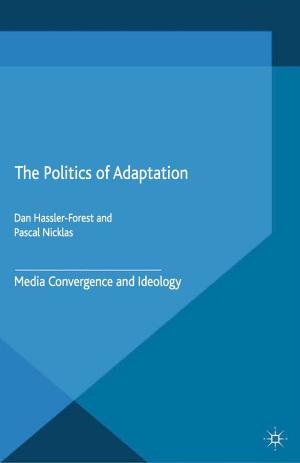Performing Animality
Animals in Performance Practices
Nonfiction, Entertainment, Performing Arts, Theatre, History & Criticism| Author: | Jennifer Parker-Starbuck | ISBN: | 9781137373137 |
| Publisher: | Palgrave Macmillan UK | Publication: | April 8, 2015 |
| Imprint: | Palgrave Macmillan | Language: | English |
| Author: | Jennifer Parker-Starbuck |
| ISBN: | 9781137373137 |
| Publisher: | Palgrave Macmillan UK |
| Publication: | April 8, 2015 |
| Imprint: | Palgrave Macmillan |
| Language: | English |
Performing Animality provides theoretical and creative interventions into the presence of the animal and ideas of animality in performance. Animals have always played a part in human performance practices. Maintaining a crucial role in many communities' cultural traditions, animal-human encounters have been key in the development of performance. Similarly, performance including both living animals and/or representations of animals provides the context for encounters in which issues of power, human subjectivity and otherness are explored. Crucially, however, the inclusion of animals in performance also offers an opportunity to investigate ethical and moral assumptions about human and non-human animals. This book offers a historical and theoretical exploration of animal presence in performance by looking at the concept of animality and how it has developed in theatre and performance practices from the eighteenth century to today. Furthermore, it points to shifts in political, cultural, and ethical animal-human relations emerging within the context of animality and performance.
Performing Animality provides theoretical and creative interventions into the presence of the animal and ideas of animality in performance. Animals have always played a part in human performance practices. Maintaining a crucial role in many communities' cultural traditions, animal-human encounters have been key in the development of performance. Similarly, performance including both living animals and/or representations of animals provides the context for encounters in which issues of power, human subjectivity and otherness are explored. Crucially, however, the inclusion of animals in performance also offers an opportunity to investigate ethical and moral assumptions about human and non-human animals. This book offers a historical and theoretical exploration of animal presence in performance by looking at the concept of animality and how it has developed in theatre and performance practices from the eighteenth century to today. Furthermore, it points to shifts in political, cultural, and ethical animal-human relations emerging within the context of animality and performance.















